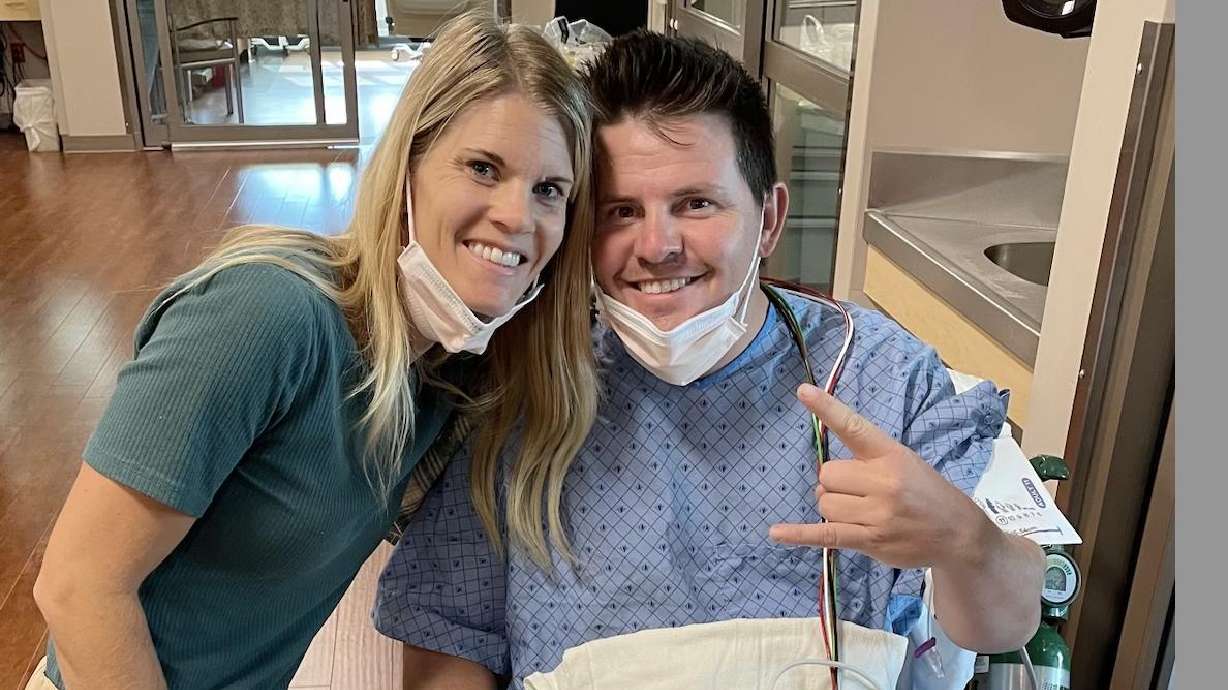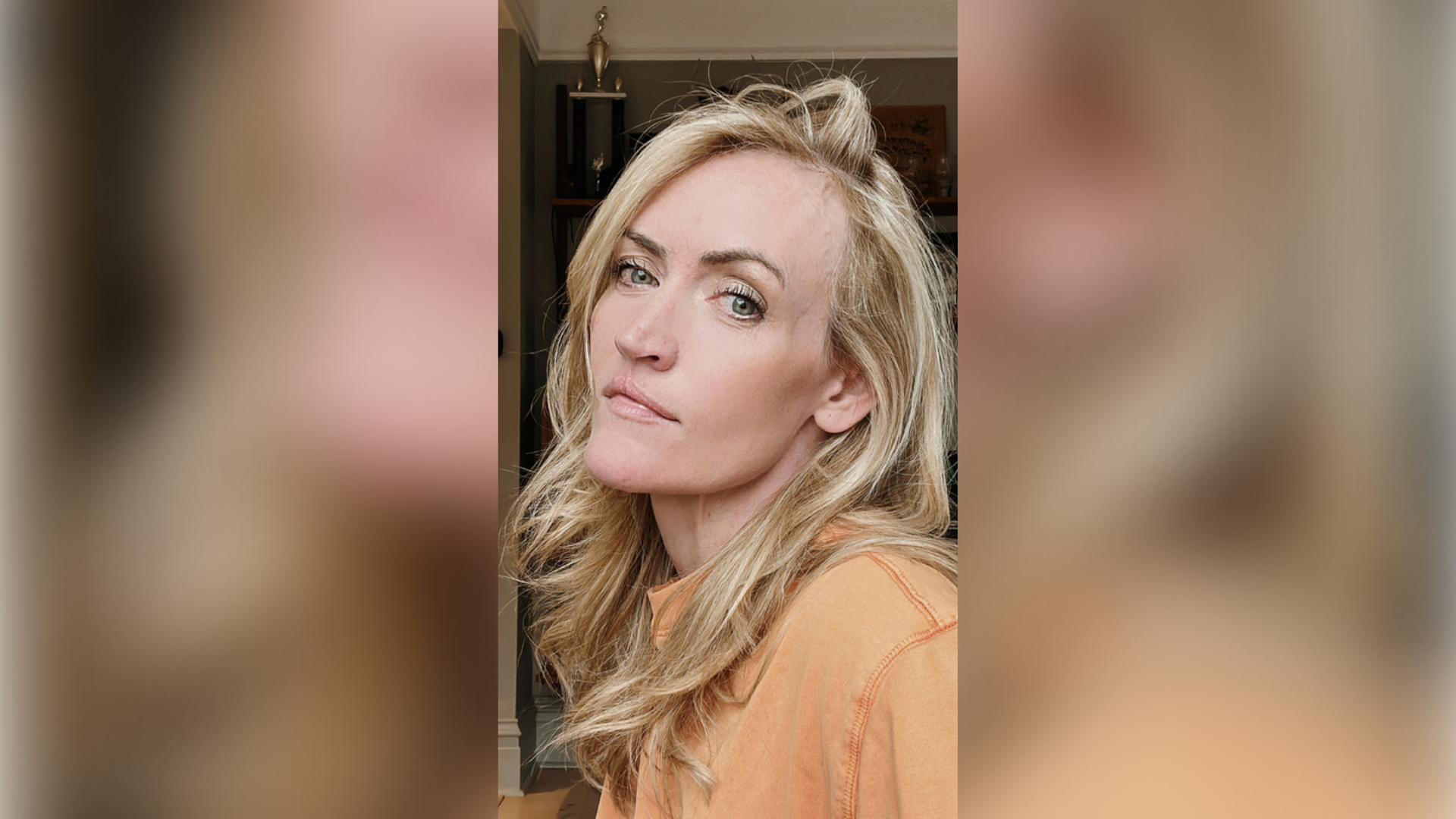HEALTH
Forgiveness and your health: What science says about the benefits
Jun 5, 2019, 12:32 PM

File Photo: Shutterstock
By Jacqueline Howard, CNN
(CNN) — A father forgives the man involved in his son’s death. A mother forgives her daughter’s killers. One family offers forgiveness to the man who shot their dad.
We hear about these stories of people forgiving those who hurt them all the time, and they stand out because for some, such a gesture is unimaginable. We all understand why someone wouldn’t forgive the person — but we often struggle to understand those who choose to do so.
It’s a struggle that Everett Worthington knows all too well.
He knows it not just because Worthington is a professor emeritus of psychology at Virginia Commonwealth University in Richmond, Virginia, nor because he authored several books on forgiveness and conducted research on the topic — but because he is the son of a woman who was murdered.
Following his mother’s tragic death, Worthington faced the difficult decision to forgive.
“That ended up being a hard growing experience and one where my brother and my sister and I all came to the same conclusion about the young man: that we forgave him,” Worthington said.
Working toward forgiveness in such tragic cases might seem noble to some but puzzling to others who might argue a killer should not be forgiven.
“[Forgiveness is] what mom taught us to do and we would be dishonoring her if we didn’t follow her teaching,” he said about forgiveness. “People don’t deserve forgiveness. It’s a gift that people give.”
Based on his own journey to forgiveness — and his own studies — Worthington agrees with the general consensus among researchers that acts of forgiveness actually do a lot for the person who extends it.
Here’s what we know about how the human mind views the gesture.
‘Whose heart is darker here?’
The sun set on New Year’s Eve night in Knoxville, Tennessee. The year was shifting from 1995 to 1996, and Worthington’s 76-year-old mother Frances McNeill went to bed early.
Later in the night, McNeill awoke from her slumber to the noise of someone burglarizing her home.
“It was a young man who had broken in,” Worthington said. “She’s looking right at him, and he’s standing there holding a crowbar that he used to break in the window and he beat her until she died, and actually violated her with a wine bottle.”
Worthington’s younger brother Mike, who died by suicide about 10 years later, found their mother’s body the next morning.
“We had gone through the murder investigation over the course of the day and I had just gotten really angry with the person who had done this,” Worthington said about that devastating day.
“I got so angry in discussing this with my brother who had just discovered the body, and my sister, that I pointed to a baseball bat against the wall and said, ‘I wish whoever did that were here. I would beat his brains out,’ and I was so angry that I couldn’t sleep,” he said.
Then, as the night turned to morning, Worthington’s thoughts of anger started to change.
“I was pacing the room at my aunt’s house, where I was staying there, and at about 3 o’clock in the morning, I started thinking, ‘Hey I’m a forgiveness researcher. I’m a psychotherapist. I helped couples forgive for years. I’m a Christian. I’ve got a belief system that supports forgiveness, and yet I have not allowed myself to even think the F-word all day, the forgiveness word,’ ” Worthington said.
“About the time I got through thinking of this, I kind of flashed back to earlier that night where I was looking at that baseball bat thinking I would beat him in the head until he died. And it just came to me: whose heart is darker here?”
Worthington decided to follow an intervention model he created years prior called REACH Forgiveness — a guide to help his clients become more forgiving, which he needed at that moment for himself.
REACH stands for recalling the incident that hurt you; empathizing with the person who wronged you; thinking of forgiving that person as an altruistic gift; committing yourself to forgiving them; and then holding onto that forgiveness without taking it back.
But there are some people for whom the concept of forgiveness is totally foreign.
“There are differences in philosophy and religion and personal beliefs about whether people think forgiveness is appropriate or possible and those kinds of beliefs can stop them from forgiving,” Worthington said.
Yet in general, studies suggest that practicing acts of forgiveness is tied to both mental and some physical health benefits, including reductions in blood pressure levels.
The health benefits of forgiveness
Harboring anger and hostility were associated with a higher risk of coronary heart disease in a paper that published in the Journal of the American College of Cardiology in 2009.
The paper, which involved reviewing 44 previously published studies on heart disease, found that anger and hostility were linked with increased coronary heart disease events, such as heart attack, in healthy people and poor prognosis in those who already had a history of heart disease.
“To better understand the process of forgiveness, it might be useful to step back and look at the process of holding on to anger,” said Neda Gould, a clinical psychologist and assistant professor of psychiatry and behavioral sciences at Johns Hopkins University School of Medicine in Baltimore.
“Anger is a form of stress, and so when we hold on to anger it is as though we are turning on the body’s stress response, or fight or flight response, chronically. We know that turning on this response chronically leads to wear and tear on the body,” she said. “It may not be surprising that when we engage in the act of forgiveness, we can begin to turn off the stress response and the physiological changes that accompany it.”
Even in people with high lifetime stress, among those who score high on measures of forgiveness — in which they report engaging in acts of forgiveness — their high-stress lives tend not to predict poor mental health, according to a study published in the Journal of Health Psychology in 2016.
In other words, forgiveness might provide some protective factors against lifetime stress, even though researchers have long known that lifetime stress is tied to worse mental health outcomes.
Another study, published in the Annals of Behavioral Medicine in 2016, found that over time, increases in forgiveness are associated with decreases in stress.
The study involved using questionnaires to measure levels of forgiveness and perceived stress among 332 adults, age 16 to 79. The adults were followed for five weeks, and levels of forgiveness were measured by asking whether the adults agreed or disagreed with statements such as “I wish for good things to happen to the person who wronged me.”
The study found that levels of forgiveness tended to change over time, but in general, “increases in forgiveness were associated with reductions in perceived stress, which were in turn related to decreases in mental but not physical health symptoms,” the researchers wrote in the study.
“Given how complex we are as human beings in terms of our biology and our experiences, it is difficult to generalize why some people are more likely to forgive than others. However, forgiveness is a skill that can be cultivated,” Gould said.
How to become more forgiving
The level of ease you have with forgiving can be tied to your personality type; genetics; whether you’re trusting or suspicious of others due to past experiences; and the nature of the offense you are trying to forgive, Worthington said.
“There is, with any hurt or offense, what I call an ‘injustice gap.’ It’s a sense of how much injustice has been done, and big gaps are hard to forgive. Small gaps are easier to forgive,” he said. “When offenders admit responsibility, offer an apology, show they understand how much they hurt the other, offer restitution, ask for forgiveness, all of these are perceived by the victim as costly, which reduces the ‘injustice gap.’ ”
For some people, practicing forgiveness comes easily — while for others it can be an ongoing struggle. That’s why even restorative justice, the alternative response to crime that focuses on healing rather than punishment, never asks its participants to forgive. It’s a personal choice that only a survivor can make.
If it’s one you are struggling with, Worthington said, there are ways to learn how to be more forgiving, such as by following the REACH Forgiveness model he developed during his academic career.
One separate study also suggests that, among people who practice prayer, they can become more forgiving the more they pray.
Among 151 study participants, those who said a brief 3-minute prayer for their romantic partner showed statistically significant decreases in motives to retaliate against their partner when offenses were made after that prayer compared with before, according to the study published in the International Journal of Psychology in 2015.
The study participants, college students from the United States and India, included those of the Christian, Hindu and Muslim faiths, and the study found that religious affiliations did not moderate the effect of prayer on forgiveness in the participants.
No matter your preferred method of reaching forgiveness, there are steps anyone can take to begin the process of forgiveness, said Kevin Gilliland, a licensed clinical psychologist and executive director of the outpatient counseling service Innovation360 in Dallas, Texas.
It just takes “discipline, inner strength and intentionality,” he said.
“In order for our hearts to heal, forgiveness is essential. Realize that forgiveness is for us, not them. It is unfortunate that someone caused us harm but holding on to the negative feelings towards that person is only hurting ourselves. Forgiveness takes practice and is not always a one-time decision,” Gilliland said.
“We may need to forgive some offenses every day, until we start remembering the offense less and less,” he said. “We may never understand ‘why,’ but that may not be for us to figure out.”
The-CNN-Wire
™ & © 2019 Cable News Network, Inc., a Time Warner Company. All rights reserved.












